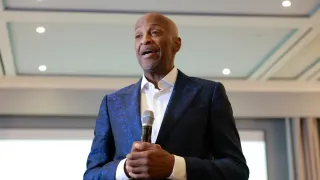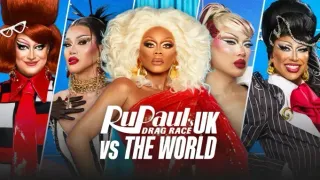October 1, 2018
New California Internet Neutrality Law Sparks U.S. Lawsuit
Jonathan J. Cooper READ TIME: 2 MIN.
California Gov. Jerry Brown has approved the nation's strongest net neutrality law, prompting an immediate lawsuit by the Trump administration and opening the next phase in the battle over regulating the internet.
Advocates of net neutrality hope California's law, which Brown signed Sunday to stop internet providers from favoring certain content or websites, will push Congress to enact national rules or encourage other states to create their own.
However, the U.S. Department of Justice quickly moved to halt the law from taking effect, arguing that it creates burdensome, anti-consumer requirements that go against the federal government's approach to deregulating the internet.
"Once again the California Legislature has enacted an extreme and illegal state law attempting to frustrate federal policy," U.S. Attorney General Jeff Sessions said in a statement.
The Federal Communications Commission repealed Obama-era rules last year that prevented internet companies from exercising more control over what people watch and see on the internet.
The neutrality law is the latest example of California, ground zero of the global technology industry, attempting to drive public policy outside its borders and rebuff President Donald Trump's agenda.
Brown did not explain his reasons for signing the bill or comment on the federal lawsuit Sunday night.
Supporters of the new law cheered it as a win for internet freedom. It is set to take effect Jan. 1.
"This is a historic day for California. A free and open internet is a cornerstone of 21st century life: our democracy, our economy, our health care and public safety systems, and day-to-day activities," said Democratic Sen. Scott Wiener, the law's author.
It prohibits internet providers from blocking or slowing data based on content or from favoring websites or video streams from companies that pay extra.
Telecommunications companies lobbied hard to kill it or water it down, saying it would lead to higher internet and cellphone bills and discourage investments in faster internet. They say it's unrealistic to expect them to comply with internet regulations that differ from state to state.
USTelecom, a telecommunications trade group, said California writing its own rules will create problems.
"Rather than 50 states stepping in with their own conflicting open internet solutions, we need Congress to step up with a national framework for the whole internet ecosystem and resolve this issue once and for all," the group said in a Sunday statement.
Net neutrality advocates worry that without rules, internet providers could create fast lanes and slow lanes that favor their own sites and apps or make it harder for consumers to see content from competitors.
That could limit consumer choice or shut out upstart companies that can't afford to buy access to the fast lane, critics say.
The new law also bans "zero rating," in which internet providers don't count certain content against a monthly data cap – generally video streams produced by the company's own subsidiaries and partners.
Oregon, Washington and Vermont have approved legislation related to net neutrality, but California's measure is seen as the most comprehensive attempt to codify the principle in a way that might survive a likely court challenge. An identical bill was introduced in New York.
__
Associated Press writers Eric Tucker and Mike Balsamo in Washington and Kathleen Ronayne in Sacramento contributed to this report.






